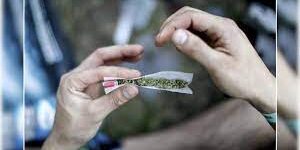INTRODUCTION
The central law that deals with cannabis (weed or marijuana) in India is the Narcotic Drugs and Psychotropic Substances Act, 1985. However, states have their own laws relating to consumption, possession, sale or purchase of weed or marijuana. In India, possession of these drugs is considered a criminal act.
For instance, Odisha is a state in which weed is legal in India and people commonly use ‘chillums’ to smoke weed within the state’s territory. Uttarakhand is the first state in India to allow commercial cultivation of Hemp. Since it requires less amount of water, many other hilly states are considering the proposal to allow controlled production of Hemp, and marijuana.
Cannabis is the flowering or fruiting top of the cannabis plant. By this definition, ‘bhang‘ does not constitute a part of the cannabis plant and hence ‘bhang’ is openly consumed in India on numerous religious occasions.
The NDPS Act defines ‘cannabis’ as:
- Charas, crude or purified, is a separated resin obtained from the cannabis plant and includes concentrated preparation or resin called liquid or hashish oil.
- Ganja, the flowering or fruiting top, that excludes seeds and leaves which do not form part of the top.
- Any mixture or drink made out of charas or ganja.
The definition of cannabis under the NDPS Act excludes bhang as a part of the plant as well.
The NDPS Act prohibits the sale and production of cannabis resin and flowers . The use of leaves and seeds of the cannabis plant is permitted. The states have the power to regulate for it. Any person caught in possession of any of these parts of the cannabis plant may be arrested.
The Assam Ganja and Bhang Prohibition Act, 1958 bans the sale, possession, purchase, and consumption of ganja and bhang. The Bombay Prohibition (BP) Act, 1949 prohibits the manufacture, possession, and consumption of bhang and bhang-containing substances without a license in Maharashtra.
Penalties in case of possession of drug
The possession of drug is an offence under NDPS Act. The purpose of possession of drugs is irrelevant. The punishment depends upon the quantity of drugs in possession. If a person found in possession of the drug is an addict and voluntarily chooses to undergo de-addiction, the accused will not be subjected to prosecution.
Laws with reference to Juveniles
The various laws that deal with possession and consumption of drugs in India by juveniles, or children below the age of 18 years are as following:
- The Narcotic Drugs and Psychotropic Substances Act, 1985
- The Juvenile Justice (Care and Protection) Act, 2000
- State drug laws
Punishment for carrying drugs (Weed or Marijuana) in India
As per section 20 of Narcotic Drugs and Psychotropic Substances Act, 1985 the production, sale/purchase, transportation, interstate import/export or any other commercial activity of cannabis is punishable.
- For holding a small quantity, the prescribed punishment is rigorous imprisonment for up to 6 months, fine of Rs. 10,000 or both.
- For holding more than a small quantity but less than the commercial quantity, the prescribed punishment is rigorous imprisonment for up to 10 years, fine of Rs. 1 lakh, or both.
- For holding commercial quantity, but slightly less than commercial quality, the prescribed punishment is rigorous imprisonment for up to 10-20 years, fine of Rs. 1-2 lakh, or both.
The small and commercial quantity of various drugs in India are as follows:
- Heroin: 5 grams- 250 grams
- Cocaine: 2 grams- 100 grams
- Hashish or Charas: 100 grams- 1 kg
- Opium: 25 grams- 2.5 kgs
- Ganja: 1kg- 20 kgs
Recreational and Medical use of Weed
There are two kinds of weed-
- That serves a medical purpose, and the other which is used for recreation. Medical use of the cannabis plant is said to help in the management of diseases such as cancer, epilepsy and sickle cell anaemia.
- Recreational cannabis is used to intentionally change one’s state of consciousness, often producing feelings of happiness and exhilaration. Since cannabis is banned in India, medical or recreational use, both are banned under Indian law. Thus, people who want to medicate with cannabis also have no legal protection in India along with the ones who want to use it for recreational purposes.








